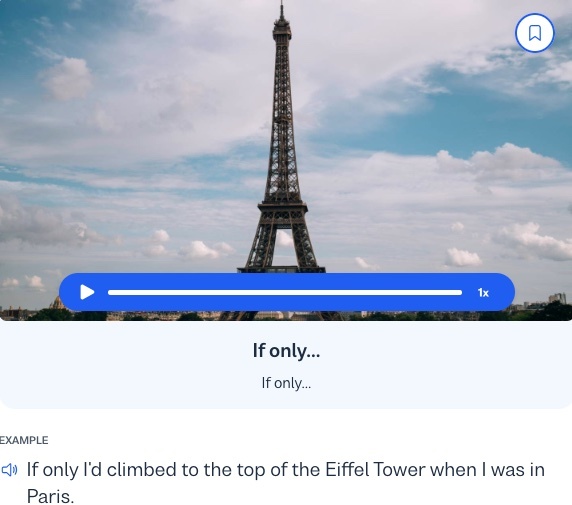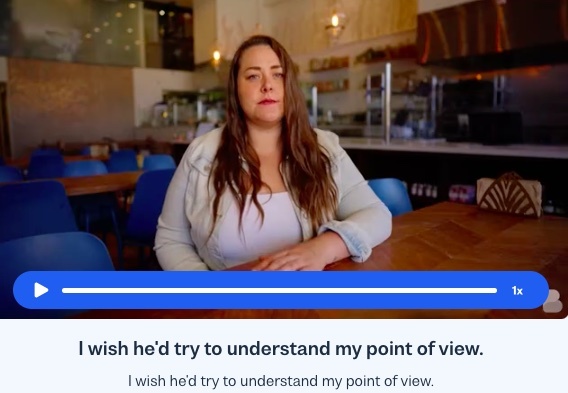So Be It! The Subjunctive Mood in English
Discover the English Subjunctive Mood with our comprehensive guide: What is it, How to use it and How to avoid common mistakes.
I want to learn...
So you avoided grammar your whole life but today you came across a definition or an explanation about the verbs in the subjunctive mood and it seems like you can no longer ignore this? Don’t you worry. Grammar can look complicated but luckily for you the subjunctive mood is actually quite simple and everything will be clear when you get to the bottom of this article. So let’s begin and let’s start talking about different moods.
How verbs get in the mood
Are we going to talk about happy verbs? Sad verbs? Do verbs actually have feelings? Well, some of them may get offended when we make mistakes but no, we are not talking about those moods. Verb moods express the attitude of the speaker. In English we have three main moods: indicative, imperative, subjunctive. You can see a few examples in the table below.
3 English verb moods
| Mood | Usage | Example |
|---|---|---|
| Indicative | It is the most common and is used to express facts and ask questions. | London is a very big city. I like this cake a lot. |
| Imperative | It indicates a command, a prohibition or a request. | Stop talking! Come here, please! |
| Subjunctive | It is used in dependent clauses to express hypotheses, desires or suggestions. | If I were younger, I wouldn’t wait to do that. My office is asking that I go in on Saturday. |
So as you can see from the last line, the subjunctive is always present in dependent clauses (sentences that could not stand alone) and it always comes after expressions that indicate a hypothesis, a wish or a suggestion. Basically, subjunctive doesn’t exist alone, it needs to be triggered.
What triggers the subjunctive mood?
There are a number of expressions that will require the use of the subjunctive. Let’s group them by categories.
Expressions of wish or preference
- I wish (that)...
- I would rather…
- It’s time…
- If only…
- I would prefer… * It’s best…
Suggestions or recommendations
- It’s important (that)...
- It’s necessary (that)...
- It’s essential (that)...
- I recommend that…
Demands and prohibitions
- I demand (that)...
- It’s imperative (that)
- It’s crucial (that)...
- It’s vital (that)...
- It’s requested (that)
- It’s suggested (that)...
- It’s forbidden (that)
- It’s required (that)...
Expressions of doubt and hypothesis
- If only…
- If it were for…
- If it were up to me…
- If it were the case that…
- If I were you…
- If I were in your shoes…
More common that you thought: Common phrases with the subjunctive
Some of the expressions that we have seen before might already ring a bell to you. Well, the subjunctive is part of many phrases that we use on a daily basis without even realizing that we switched to a different mood.
Common phrases with subjunctive
| Expression | Meaning | Example |
|---|---|---|
| So be it | I will accept it | If she insists on moving to a different city, so be it. We will find a way to stay in touch. |
| Come what may | Whatever happens | I will finish this marathon, come what may. |
| Be that as it may | Regardless | He doesn’t have much experience but, be that as it may, he’s very talented and eager to learn. |
| Far be it from me | I wouldn’t do that | Far be it from me to judge, but I think I would have done things differently. |
| Suffice it to say | I won’t say more than this | Suffice it to say, things didn't go as planned. |
| If need be | If necessary | If need be, I can stay late to finish the project. |
Looking at these common phrases, we can notice two important characteristics of the subjunctive: it has different forms from the indicative (the most common verb mood) and that sometimes it requires a different word order. Let’s see how this works.
If we were in your shoes, we would sign up today
When learning a language, consistency is key. If you develop a daily routine where you take care of your English for 10 or 15 minutes a day, you are on a good path to fluency. Busuu will make you work on a personalized lesson plan that will fit into your schedule. Don’t wait and sign up now!
The forms of the subjunctive
If you have been studying English for a while, you already know that English has very few variations in verbs. Yes, we do add an -s at the end of the third person (he, she, it eats), and we do have a few irregulars, but that is nothing if compared to many languages.
The subjunctive is equally easy on the mind of learners, with slight to none modification compared to the more common indicative form. To form the subjunctive, in fact you just need to have the basic form, that would be the infinitive form (to eat), without the “to” (eat). No need to add an -s to the third person either.
Forms of the present subjunctive
| Subject | To be | To have | To see | To do |
|---|---|---|---|---|
| I | be | have | see | do |
| you | be | have | see | do |
| He, She, It | be | have | see | do |
| We | be | have | see | do |
| You | be | have | see | do |
| They | be | have | see | do |
You see? That is very easy to remember. Irregular verbs like to be or to have have only one form and there are no -s or -es forms in the third person (he sees > he see; he does > he do).
Let’s see a few examples of these into context.
- INDICATIVE: She talks to her friend every day.
- SUBJUNCTIVE: I suggest that she talk to her friend every day.
- INDICATIVE: He is happy with his job.
- SUBJUNCTIVE: It is important that he be happy with his job.
- INDICATIVE: She has enough time to finish the project.
- SUBJUNCTIVE: I recommend that she have enough time to finish the project.
Forms of the past subjunctive
| Subject | To be | To have | To see | To do |
|---|---|---|---|---|
| I | were | had | saw | did |
| you | were | had | saw | did |
| He, She, It | were | had | saw | did |
| We | were | had | saw | did |
| You | were | had | saw | did |
| They | were | had | saw | did |
The most notable difference with the indicative past perfect is that the verb to be has only were forms, and not I was or she was. This is part of everyday expressions like If I were you or if I were in your shoes. Remember Beyonce’s song If I were a boy? Same thing.
Subjunctive and word order
We have seen previously with a few common expressions that subjunctive might influence word order. Expressions like suffice it to say or so be it have the subject pronoun it after the verb (suffice, be), where in English it would usually go before: it suffices to say, it is.
This happens in formal or literary constructions that usually express a hypothesis or a conditional clause. In most cases it happens with the omission of the word if.
- NORMAL WORD ORDER: If he were to arrive early, we would start the meeting on time.
- INVERTED WORD ORDER: Were he to arrive early, we would start the meeting on time.
Unless you are dealing with very formal communication, however, this will probably not come up on a day to day basis. There are, however, a few expressions that are always used as such and this peculiar rule explains why. Be there as it may (wink, wink) many expressions enter the language as whole phrases and should be treated as they come.
Let’s go back to more practical aspects: since indicative and subjunctive are so similar, how do you avoid making mistakes?
How to get in the right mood: Common mistakes
First, let’s say that mistakes involving the subjunctive are very common even with native speakers, so if you are a non-native speaker struggling with this, you shouldn’t feel too bad about it.
Here are some typical errors and how to avoid them:
Table guide in using the right verb mood
| Using indicative instead of subjunctive after verbs of recommendation, demand or suggestion. | |
|---|---|
| MISTAKE | She insists that he goes to see a doctor. |
| CORRECTION | She insists that he go to see a doctor. |
| EXPLANATION | After verbs of recommendation, demand, or suggestion like insist, recommend or suggest, the subjunctive mood should be used with the base form of the verb. |
| Using was instead of were in hypothetical sentences and wishes. | |
| MISTAKE | If I was rich, I wouldn’t work. I wish you was here. |
| CORRECTION | If I were rich, I wouldn’t work. I wish you were here. |
| EXPLANATION | In hypothetical statements or in wishes, were is used for all subjects. |
| Not using subjunctive in fixed expressions. | |
| MISTAKE | Heaven forbids that he gets sick. |
| CORRECTION | Heaven forbid that he gets sick. |
| EXPLANATION | Fixed expressions and idiomatic phrases allow for very little changes. |
Wrapping up
The English subjunctive might seem an obscure grammar topic, but as we have seen in this article, it gives nuance to a discourse and it is important to convey hypothetical situations, wishes, demands, and recommendations accurately. It has distinct characteristics and in modern English it is used rather infrequently, but nonetheless, it is one more tool in your English kit.
So remember to use the base form in hypothetical clauses, recognize common fixed expressions, and differentiate between indicative and subjunctive. If you practice these rules, you can avoid common mistakes and improve your overall language proficiency.
Heaven forbid you forgot all of this
A clear and detailed explanation is really useful to understand a difficult grammar topic, but only practice makes perfect and you should consider doing something about that now. Do you know that in Busuu you have hundreds of lessons on grammar and vocabulary and a huge community of learners that can help you progress? Start your language journey today and let the practice begin!

